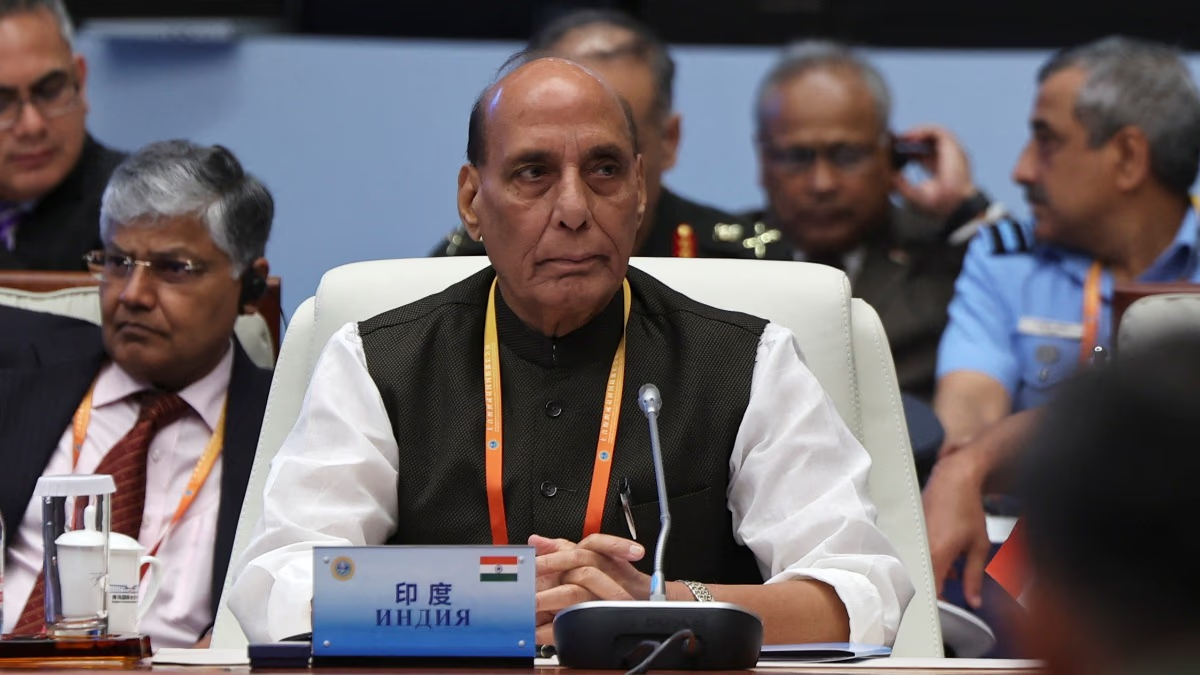Defense Minister Rajnath Singh participated in the Shanghai Cooperation Organization (SCO) meeting held in China. Throughout the meeting, he boldly exposed Pakistan on a global platform. Rajnath Singh not only condemned the Pahalgam attack in the strongest terms but also issued warnings about executing future missions like Operation Sindoor against terrorism. By refusing to sign the SCO Joint Statement, the Defense Minister unraveled the conspiracy spun by China and Pakistan.
Thwarting a Plot Against India
During the meeting, while in the presence of Pakistani Defense Minister Khawaja Asif, Rajnath Singh staunchly defended India's position concerning Pakistan-sponsored terrorism, the Pahalgam attack, and Operation Sindoor. He also declined to sign the SCO Joint Document post-meeting, as China and Pakistan seemed intent on entrapping India using it.
According to sources, Pakistan aimed to include Balochistan references in the SCO draft resolution as a leverage to target India. This draft enjoyed full support from China. Pakistan continuously alleges that India's provocation fuels Balochistan's independence efforts, consistently accusing India of destabilizing the province. Utilizing Balochistan as a pretext, they sought to target India.
Mention of the Pahalgam Terrorist Attack
Rajnath Singh firmly dismissed any possibility of signing the draft that included such claims. Moreover, India insisted on mentioning the Pahalgam terrorist attack in the draft, a point to which Pakistan objected. Consequently, no joint statement or resolution emerged from the SCO meeting.
In the draft, both Pakistan and China tried to shift focus from terrorism to escape scrutiny. However, the Defense Minister refused to sign, as it could potentially weaken India's stance. During the photo session, Pakistani Defense Minister Khawaja Asif stood distanced from Rajnath Singh, and no dialogue occurred between them.
Strong Rebuke to Pakistan
In his address during the meeting, Rajnath Singh criticized Pakistan-sponsored terrorism, stating, 'It is imperative for those nurturing and utilizing terrorism for selfish purposes to face consequences. Some countries employ cross-border terrorism as a policy tool and harbor terrorists, which should not be tolerated. SCO must not hesitate to criticize such nations.'
Commenting on the Pahalgam attack, he noted, 'On April 22, 2025, the terrorist group 'The Resistance Front' (TRF) executed a heinous attack on innocent tourists in Pahalgam, Jammu and Kashmir, India. The attack resulted in the loss of 26 innocent lives, including a Nepalese citizen, with victims targeted based on their religious identity. The Resistance Front, a front for the UN-declared terrorist group Lashkar-e-Taiba, claimed responsibility for this attack.'
Zero Tolerance Against Terrorism
The Defense Minister remarked that the Pahalgam attack's pattern matched prior attacks by Lashkar in India. Defending against terrorism and cross-border attacks, India conducted a successful Operation Sindoor on May 7, 2025, destroying cross-border terrorist camps.
Firmly warning Pakistan, the Defense Minister emphasized, 'India's zero-tolerance policy towards terrorism is evident through our actions, which includes the right to self-defense against terror. India has decisively shown that the epicenters of terrorism are no longer safe, and we will not hesitate to continue targeting them.'
In response to the Pahalgam attack, during Operation Sindoor, India conducted military operations destroying nine terrorist sites in Pakistan and Pakistan-occupied Kashmir (POK). When Pakistan attempted a retaliatory strike, the Indian Army responded with airstrikes on 11 military sites in Pakistan, causing significant damage.




